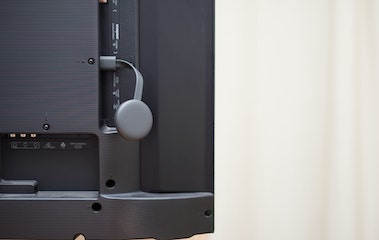Revolutionizing Hotel Entertainment: Wifirst and Otrum's Connected TV Solution
Last updated on 18 Sep 2025
In 2017 Wifirst and Otrum, aspecialist in TV management software for the hotel industry, joined forces to offer an all-in-one connected TV solution to hoteliers. The complementary know-how of Wifirst and Otrum makes it possible to offer a state-of-the-art connected solution and facilitates WiFi / TV integration during deployment for hoteliers.
Significant resources have been focused to the product and significant progress has been made with successful installations in over 10,000 hotel rooms, reflecting the growth and success of the partnership. Lets take a further look at this collaboration:

- Wifirst is now deploying the latest Otrum solution (Mirage) - What are the benefits of this solutions?
First, Mirage aligns perfectly with the “cloud-first” strategy of large hotel chains, enabling seamless integration with existing infrastructure by offering scalability, flexibility and centralised management.
The solution has a screen management web interface that allows administrators to efficiently control and configure screens. This allows for quick and easy personalisation of content, ensuring an enhanced customer experience. Since the solution is certified by LG, Samsung and Philips, compatibility and performance are guaranteed on a wide range of TVs from these manufacturers.
The “API centric” approach is another advantage. It facilitates the effortless deployment of screens and allows Wifirst to leverage APIs to populate screen content, monitor the system and automate overall management.
Finally, Mirage has an asset management feature. This allows for comprehensive hardware monitoring and maintenance, ensuring optimal performance and minimising downtime. - What developments have you witnessed regarding smart TVs in the hospitality industry?
There has been a significant evolution in recent years, as what was a basic monitor has evolved into a sophisticated multimedia device. Initially, displays functioned primarily as monitors and required separate set-top boxes (STBs) to deliver content. This configuration involved additional hardware and increased complexity.
With the introduction of System on a Chip (SoC) technology, the need for separate decoders has been eliminated. By removing the need for external devices, the installation and maintenance process has become simpler and more streamlined.
Additionally, SoC-based displays have become increasingly powerful, enabling the implementation of applications such as Netflix and other streaming services. This improvement has significantly improved the in-room entertainment experience at hotels.
With these advances, hotel TVs have successfully bridged the gap and now match the experience that customers experience at home. The availability of smart TV features and the ability to access a wide range of apps and content has become a standard expectation for customers.
The cost differential between the two has become minimal, allowing all hotels, regardless of their size or segment, to equip themselves with smart TVs. This accessibility has democratised the availability of advanced in-room entertainment options, providing a consistent and enjoyable experience for guests across the industry. - Would you say this is the end of classic television?
While the landscape of in-room entertainment has evolved significantly, it would be premature to declare classic television dead. There are still customers who prefer and seek linear channels, especially for broadcasting live sporting events or for news.
However, with the rise of on-demand streaming services and changing viewing habits, hotels have the flexibility to drop some premium channels while still meeting the needs of their guests. Many travellers now prefer to use their own streaming service subscriptions to access their favourite content on their hotel room screens.
Over the last decade, we have thus observed a significant drop in linear consumption, with a reduction of between 55% and 65%. When it comes to the use of streaming content in hotels, it should be noted that Netflix and YouTube are the dominant players, accounting for around 70% of all content consumed. These statistic highlight the importance of these platforms in shaping the in-room entertainment landscape and highlights the need for hotels to provide easy access to the most popular streaming services. - The other main Otrum product is Digital Signage - What is its main benefits?
There are many! First, having a common CMS (Content Management System) for TV screens and digital signage ensures streamlined content management. This unified approach simplifies the process of creating, planning and updating content across multiple screens, reducing complexity and saving time.
The ability to share campaigns seamlessly across common area and bedroom screens is another key benefit. Clients can take advantage of digital signage to deliver consistent and synchronised messaging across all of their properties. This synchronised approach builds brand consistency, improves communication effectiveness and creates a cohesive customer experience.
The Otrum by Uniguest digital signage solution has been met with great success in various industries (hotels, retail, offices, education, public markets, etc.). Its ease of use and the centralised management of content that particularly appeals to our users.
- Wifi (43)
- Hotel Industry (18)
- Digital Workplace (14)
- Behind the scenes (8)
- IPTV - Signage (8)
- Optical fibre (7)
- Green-IT (5)
- Retail (5)
- Education (3)
- Healthcare (2)
- Cybersecurity (1)
- General (1)
- Hospitality (1)
- PBSA (1)
- Student Accommodation (1)
- Telephony (1)
- Tips and tricks (1)
- Tourism (1)
- Wifirst (1)
You May Also Like
These Related Stories
The Essential Role of PMS in Modern Hotel Management


The Essential Role of PMS in Modern Hotel Management
15 May 2019
1
min read
Chromecast Integration in Hotels: Enhancing Guest Experience


Chromecast Integration in Hotels: Enhancing Guest Experience
20 Nov 2024
3
min read
Enhancing Post-COVID Hotel Stays with Advanced Streaming Solutions


Enhancing Post-COVID Hotel Stays with Advanced Streaming Solutions
23 Sep 2020
2
min read